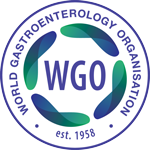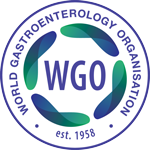Recycled Hemodialysis Membranes Dramatically Reduce the Incidence off Water-Borne Diarrheal Illness
Review by Prof. Eamonn Quigley (USA)
Study Summary
Despite progress in many parts of the world in providing potable water to its communities, there are still far too many areas of the developing world where access to clean water is not available. This study describes a simple, cheap, yet very effective method to dramatically reduce contamination of drinking water using recycled hemodialysis membranes. The study was carried out in villages in rural Ghana. Rates of diarrhea illness (calculated as a standardized rate per 100 person months) were compared both before and after the intervention and also between villages that did and did not install the membranes. From a pre-intervention level of 17.8 diarrheal rates dropped to 1.5, 2.19 and 0.54 in the three successive years after installation of the membranes and the comparative rates for the untreated villages were 80.9, 77.6 and 21.5. Thus, a truly dramatic reduction in occurrence rates of diarrheal illness was achieved.
Commentary
As discussed in a prior edition of this newsletter (Global News in GI Diseases – the Good News and the Bad News; February 26th 2024), diarrheal illness continues to be the leading cause of mortality from gastrointestinal diseases around the world, but these deaths are disproportionately distributed to the develop world. Lack of access to clean water is the most important cause of these diarrheal illnesses. In the long term major infrastructural developments will be required to address this issue; in the meantime, the authors of this study have developed an ingenious approach that seems highly effective. Dialysis membranes are re-usable but rarely recycled. However, with the pore size of the hemodialyzer membrane, being 0.003 microns, the filtration of bacterial, viral, parasite contamination is achieved. Further, with an hourly output of processed water between 250 and 500 L, the methodology is suitable for providing clean water for small to medium-sized communities with up to 1000 villagers. This simple innovation represents a sustainable and durable solution which could save lives and reduce the incidence of complications such as kidney failure.
Citation
Boaheng JM, Raimann JG, Narh P, Johnson S, Donald LL, Mati HK, Port FK, Levin NW. Evidence for long-term efficacy of a membrane filtration device in rural villages in Ghana. Sci Rep. 2024;14:5271.
View past News You Can Use commentaries

